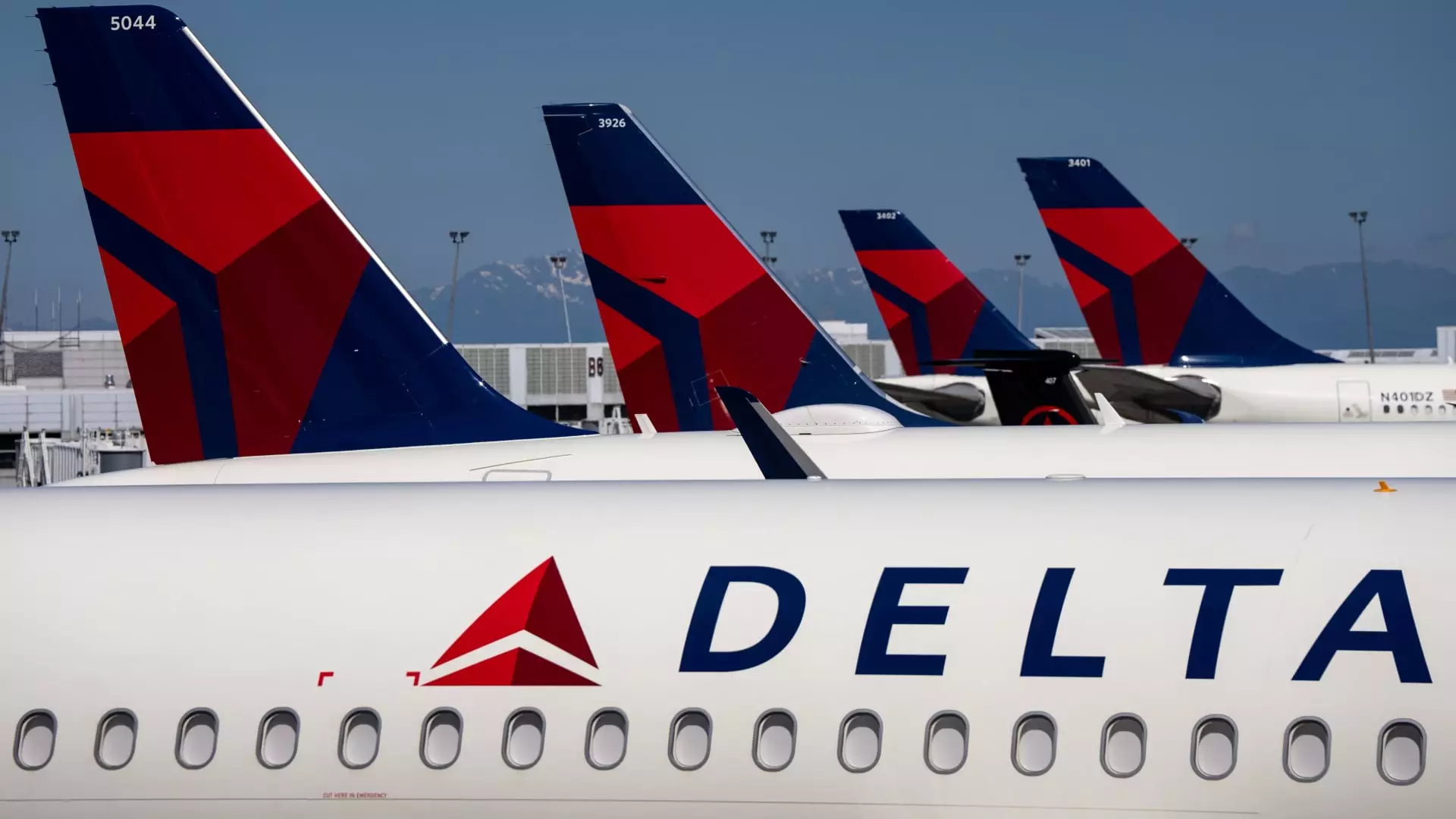Delta’s 2025 Flight Plans: 5 Troubling Signs That Should Worry Investors

Delta Air Lines has long been heralded as a beacon of profitability within the airline industry. Its ability to navigate turbulent skies was frequently lauded, but recent announcements have sparked turmoil among investors and consumers alike. With the air travel market becoming increasingly volatile, Delta’s CEO Ed Bastian has now stated that the airline will not expand its operations in the second half of the year. Instead, the company is bracing for what can only be described as a sobering forecast for 2025.
This decision is hardly a trivial one. The implications are far-reaching—not only for Delta but also for the broader airline industry and the overall economy. After all, an airline’s expansion typically reflects not just corporate confidence but consumer demand as well. When a major player like Delta decides to stand still, it sends shockwaves through the market, stirring trepidation about future growth prospects.
Corporate Apathy: A Consequence of Trade Policies
Underlying Delta’s lackluster flight expansion is a harrowing sentiment: President Trump’s shifting trade policies. Bastian has been candid, labeling these approaches as “the wrong direction.” Trade tensions have a trickle-down effect, impacting both corporate and consumer confidence. With businesses reviewing travel budgets and rethinking essential trips, there is growing skepticism about the vitality of the economy.
Consider this: if corporate executives believe that the sands are shifting beneath their feet, they will be less likely to commit to travel that does not yield immediate returns. The airline industry thrives on mobility; when the very essence of that mobility is stymied by bureaucratic bottlenecks and regulatory shifts, it creates a chasm that is hard to bridge. An airline like Delta, which thrived on corporate travel, finds itself walking a precarious path.
Waning Consumer Confidence: A Red Flag
Recent months have revealed a slowing demand across several sectors, notably in both corporate and leisure travel. Bastian’s assertion that Delta initially experienced robust demand, particularly in January, only to see a marked decline by mid-February raises alarms. How could a sector so reliant on consumer sentiment suddenly strip gears? The answer lies in consumer confidence: a fragile indicator that reflects the public’s willingness to part with their cash during uncertain times.
The subtle decline in bookings is a critical marker of overall economic health. As consumers shrink their discretionary spending, the immediate impact on leisure travel is unmistakable. Delta’s commitment to holding its capacity steady instead of expanding also implies that the airline is preparing for a future marked less by surge and more by stagnation. The infamous economic saying rings true—when consumer confidence falters, spending flattens, and that flows straight to entities such as Delta.
Analysts’ Reactions: A Bleak Outlook
As Delta’s grim prospects come into view, the reactions from Wall Street have been predictably severe. Analysts are adjusting their earnings estimates downward, reflecting a pervasive fear of a sector-wide slowdown. This upheaval illustrates a chilling trend: when Delta alters course, it sets off a chain reaction among its competitors, such as United, American Airlines, and Southwest Airlines.
While Delta has disclosed that its adjusted earnings per share remain above analysts’ expectations for the first quarter, the shadow of uncertainty looms large. If the trend continues and consumer confidence diminishes further, the ripple effect could dismantle the once-optimal profit margins that Delta has enjoyed.
The Robust Niche: Is It Too Little, Too Late?
There is a small silver lining within Delta’s current predicament; namely, that international and premium travel bookings have shown relative resilience. However, this solace may ultimately be transient. Will these segments be sufficient to prop up the entire company’s bottom line as corporate travel continues to hold back? Delta is not alone at this fork in the road, but its decisions carry weight.
Capacity growth can shield the airline from some downturns, but a market largely flat year-over-year will not bolster investor confidence in the long term. While Delta might seek to safeguard its margins and cash flow, perseverance without a clear roadmap for growth might leave it stagnant amidst a sector eagerly vying for recovery.
In sum, Delta Air Lines stands at a precarious crossroads. The cumulative effects of consumer behavior, corporate retraction, and trade policies have woven a narrative fraught with uncertainty. As Delta navigates this turbulent terrain, it must develop a strategy that acknowledges these challenges while still striving towards a more expansive future. Its current course may protect it from immediate fallout, but long-term success will demand a more ambitious vision.





